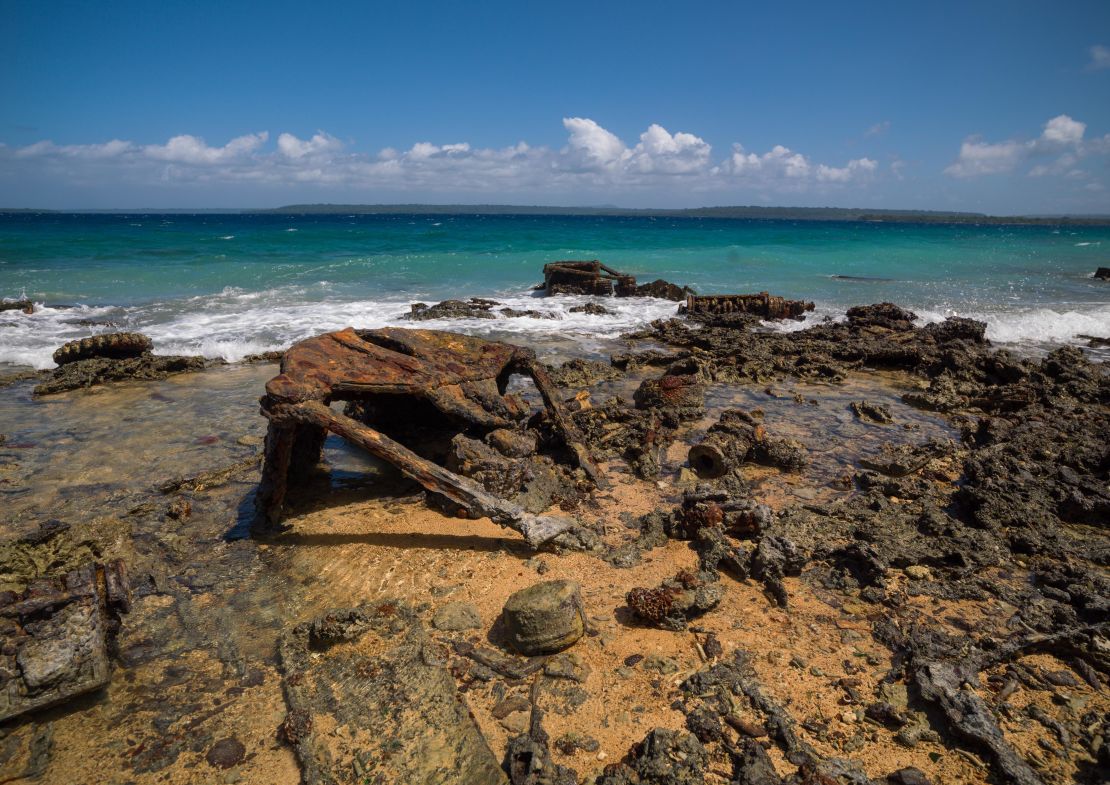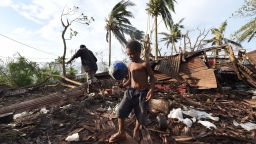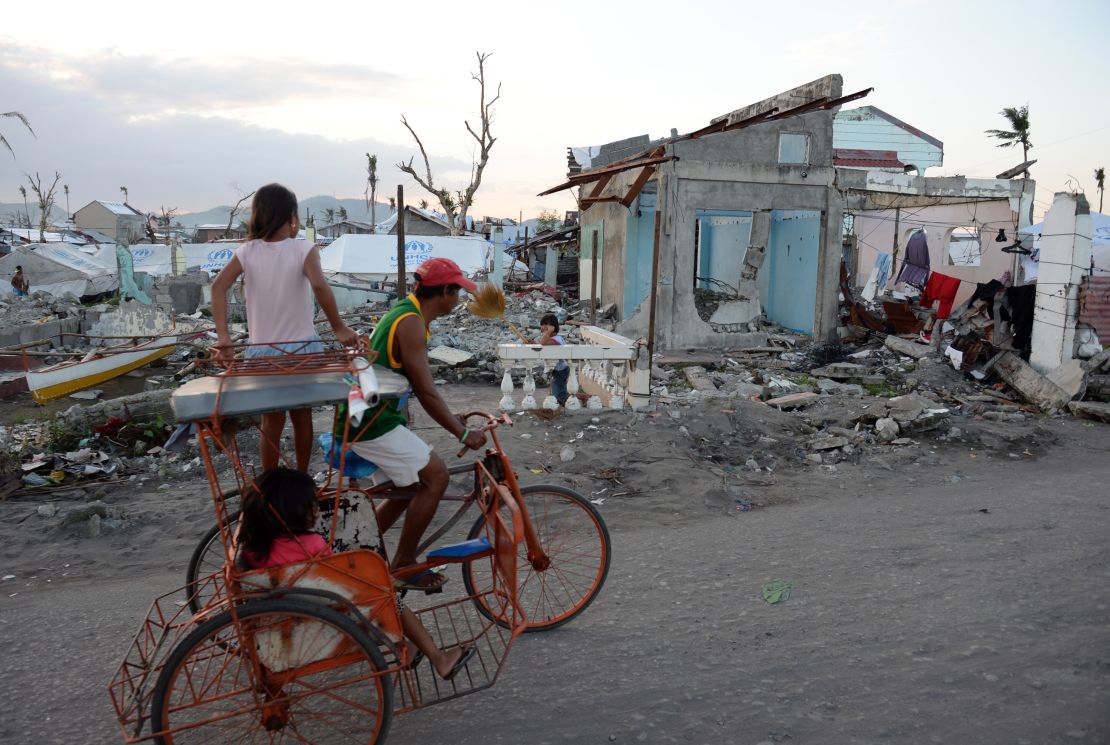A tiny Pacific Island nation facing an existential threat due to climate change has put the world’s biggest carbon energy producers on notice.
Keep it up, that nation’s top diplomat warned, and you might face a lawsuit from Vanuatu.
“Vanuatu is now considering taking legal action both against these fossil fuel companies, but also potentially the governments that are facilitating them, subsidizing them, allowing them to operate this way,” Ralph Regenvanu, foreign minister of Vanuatu, told CNN at the COP24 climate talks in Poland last week.

Regenvanu’s government is working with lawyers to establish national and international jurisdictions where his island nation could take some of the world’s biggest companies to court.
The goal is to shift the costs of climate protection onto the fossil fuel companies, financial institutions and governments that actively and knowingly created the crisis, he says.
Vanuatu may be a small country, but it’s thinking big.
At COP24, his delegation held a seminar explaining legal options to other nations also vulnerable to climate change-related threats.
“We are hoping that other countries will show an interest to join us in these actions,” Regenvanu says.
Redressing the balance
Vanuatu is one of the poorest countries in the world, with a population of less than 300,000 people scattered over more than 60 islands.
In 2015, a CNN team witnessed the aftermath of tropical Cyclone Pam, a category 5 storm that ripped through the archipelago, leveling entire forests, stunning a country that’s no stranger to powerful storms.
Regenvanu says the damage and recovery from that storm alone cost Vanuatu 64% of its gross domestic product. Destructive storms now slam the island nation with increasing frequency and power, he adds.
“We have to continually respond – provide relief to communities that are affected and then begin the process of rehabilitating, reconstructing infrastructure,” he says. “Before you’re finished, the next one comes along so you’re constantly in a state of responding, relief, rehabilitation.”

Vanuatu contributes a miniscule .0016% of global emissions, claims Regenvanu, but is facing “the brunt of the climate effects.”
“We’re the ones who are suffering most so we need to be compensated by those who have benefited from this damage that we’re now suffering.”
The power of the courts
If Vanuatu sues it will add to a growing trend of climate change litigation.
Before 2014, only 12 countries had climate law suits – by March 2017, nearly 900 such cases had been filed in 24 countries, according to the UN Environment Programme.
“There’s just a tremendous urgency to take action now, so environmental groups, citizens, states and cities are taking to the courts to try and force action,” says Michael Burger, executive director of the Sabin Center for Climate Change Law at Columbia Law School.
The majority of climate change lawsuits have been filed in the US.
“Governments are almost always the defendants in climate change cases,” according to a 2017 UN Environment global review of climate change litigation.
In 2015, activist group Our Children’s Trust filed a law suit in the state of Oregon against the federal government. “I am suing the US government for taking direct action that puts my generation disproportionately at risk from climate change, and violating my constitutional rights to life, liberty and property,” Vic Barrett, a 19-year-old American university student and member of Our Children’s Trust, told CNN at the COP24 climate talks.
That year, attorneys for the federal government filed a motion to dismiss the case.
Among the defense’s arguments were that the law suit “presents a generalized attack on government action and inaction regarding climate change, rather than a challenge to specifically identifiable violations of law that can be concretely rectified by a favorable decision.”

Ten days before a scheduled trial last October, the US Supreme Court issued a stay, temporarily halting proceedings. The case is now in limbo in the 9th District Court.
Other American plaintiffs have also stepped forward.
Last summer, the smallest state in the US, Rhode Island, announced it was “suing the world’s largest fossil fuel companies for knowingly contributing to climate change and the catastrophic consequences to the state and its residents, economy, eco-system, and infrastructure.”
The 21 defendants named in that case include oil giants ExxonMobil, BP and Shell.
Barely 10 days after the case was filed, the defendants succeeded in having the case moved from state to federal court. Their lawyers argued that since the case addressed global emissions it should be addressed at the national level.
Defense attorneys subsequently wrote in a court filing that “a stable energy supply is critical for the preservation of our general welfare, economy, and national security.”
The case is expected to get a hearing at the US District Court in February 2019.
Skepticism
Activists clearly see litigation as a new pressure tactic to force policy changes.
“By talking about it and then maybe even filing the lawsuit, they’re seeking to change the way people are thinking about this issue,” says Columbia Law School’s Michael Burger.
CNN’s chief legal analyst Jeffrey Toobin says some of these lawsuits may face an uphill battle in US courts.
“In the United States, the government is immune from many lawsuits,” he says, while corporations, Toobin says, will likely argue that their actions are legal.
“Their products never violated any existing law, because the emission of carbon in the atmosphere was not, and still is not, illegal,” Toobin says. “It’s hard to punish companies for conduct that did not violate the law.”
The best way climate activists could secure a victory, he says, would be in proving that “companies knowingly lied about the environmental impact of their products.”
Malcolm Roberts, CEO of the Australian Petroleum Production and Exploration Association, describes the attitude of some environmental activists as simplistic.
“The UN has long recognized that an adequate standard of living is a human right,” he says, noting that a billion people around the globe are not believed to have access to electricity. “We’re talking about energy businesses supplying what the world is asking for, what the world needs.”
A spokesperson for Shell, one of the world’s six largest oil and gas producing companies, tells CNN: “Filing lawsuits against the producers of energy that drives the world’s economy, raises living standards and improves lives, is not the answer.”
Philippines human rights commission
Activists are hoping a Philippine government-led inquiry taking place in New York, London and Manila could establish a precedent for linking climate change to human rights.
The Philippine Commission on Human Rights is responding to the death and destruction caused by Typhoon Haiyan, which killed more than 6,000 people when it tore through the country in 2013.

“We are listening to an argument by petitioners alleging that the carbon majors are contributing to climate change which in turn is impacting negatively on the human rights of Filipino people,” says Roberto Cadiz, who leads the Philippine Commission on Human Rights.
Energy companies were invited but declined to participate in a half dozen public hearings held around the world, says Cadiz.
“(However), in some of our hearings, some lawyers representing the carbon majors are appearing as observers, but not formally participating in the process,” he adds.
The commission is scheduled to wrap up its inquiry in 2019.
“We hope to be able to outline a minimum core of rights and duties relevant to climate justice,” Cadiz says.
Strength in numbers
Legal action is not the only weapon in the arsenal of tiny island nations vulnerable to climate change.
At COP24, Vanuata’s foreign minister teamed up with a former special adviser to the government of Dominica, a Caribbean island nation, to propose a climate damages tax.
Regenvanu, the foreign minister of Vanuatu, says the levy would tax the polluters – the “big fossil fuel companies who cause the damage.” The money would be funneled into a fund, which would assist both developing and developed nations in the fight against climate change.
But with the President of the United States denying links between human activity and climate change, and announcing that his country will withdraw from the Paris Agreement, such an initiative might struggle to win international support.
“We have no choice,” Regenvanu says. “We have to find the money somewhere.”
CNN’s John Sutter also contributed to this report.


